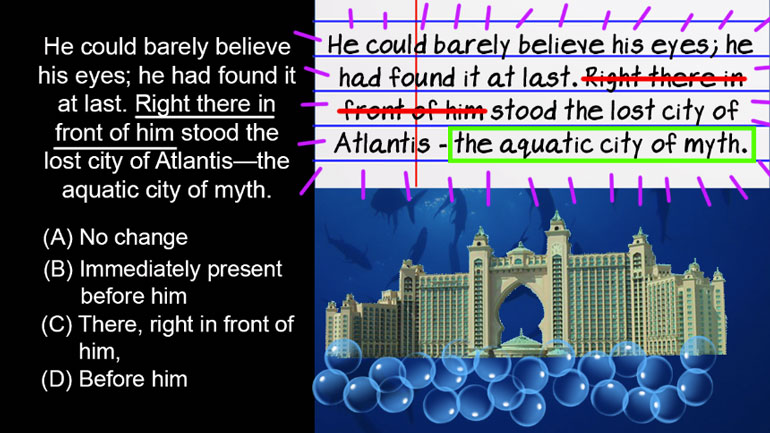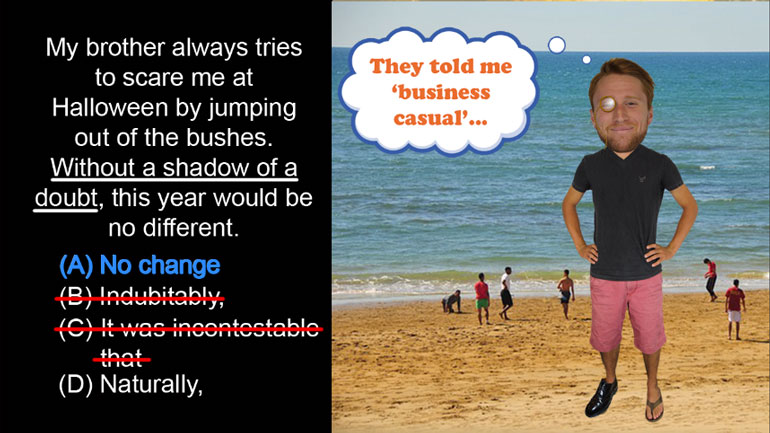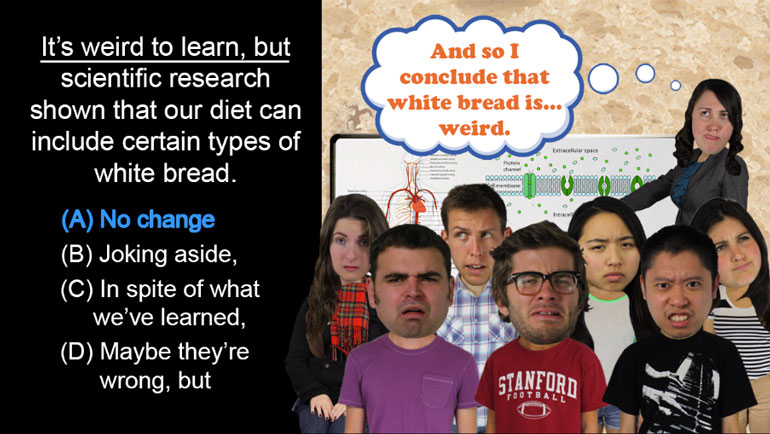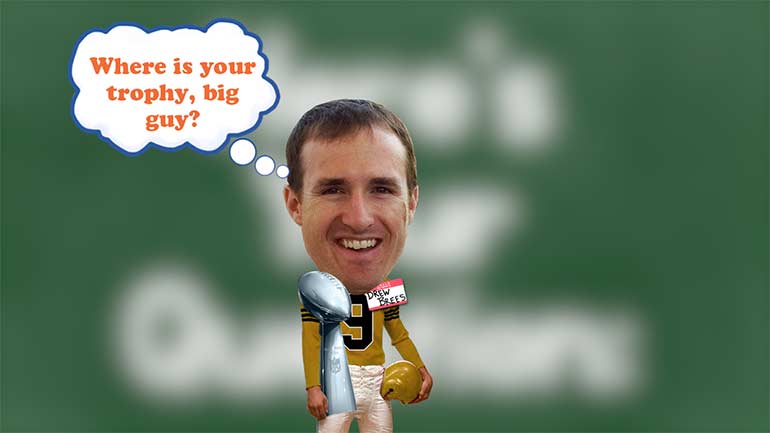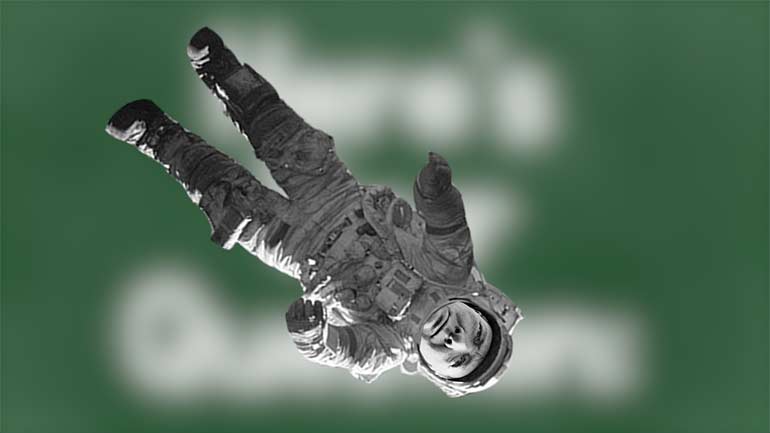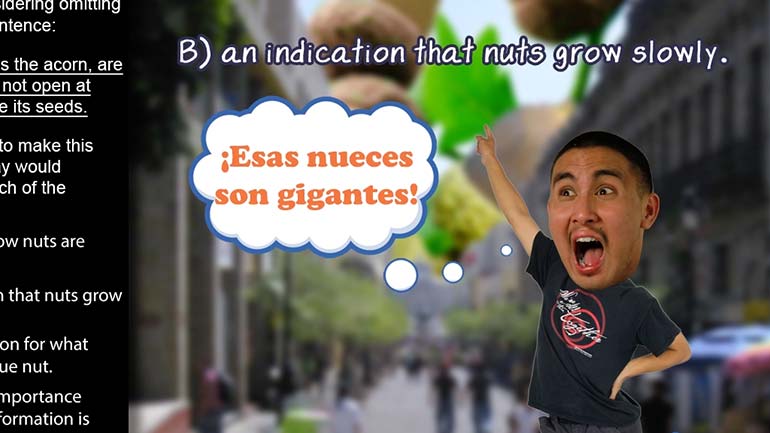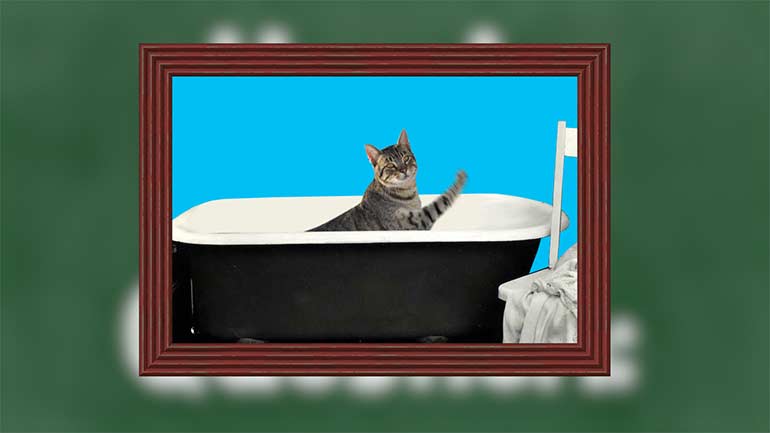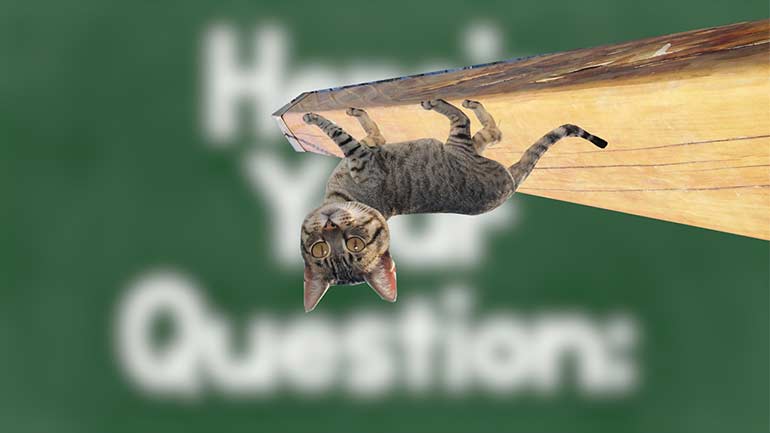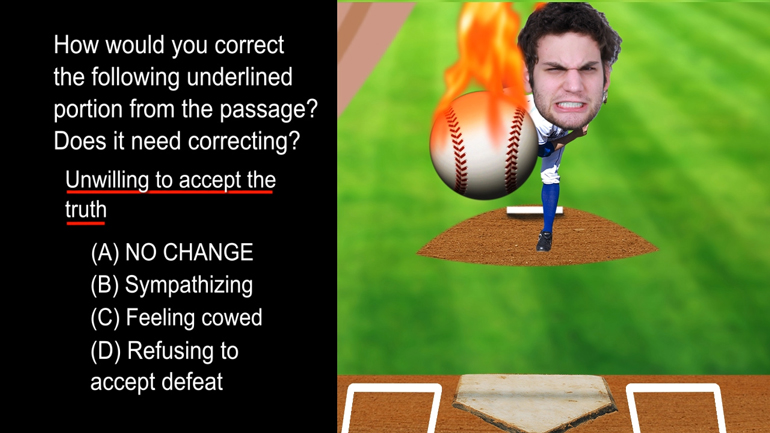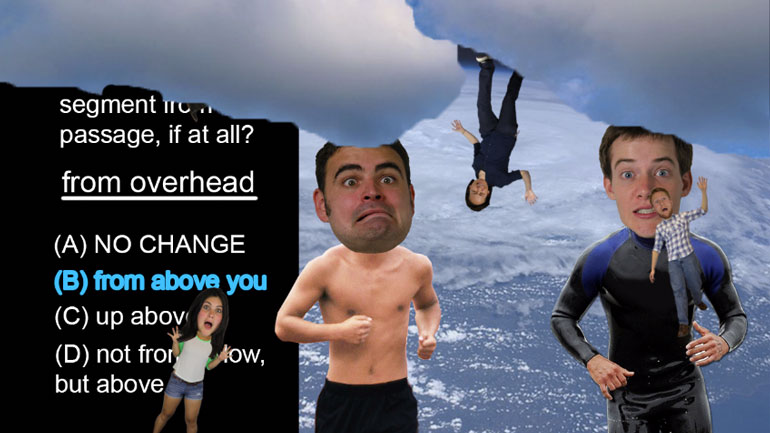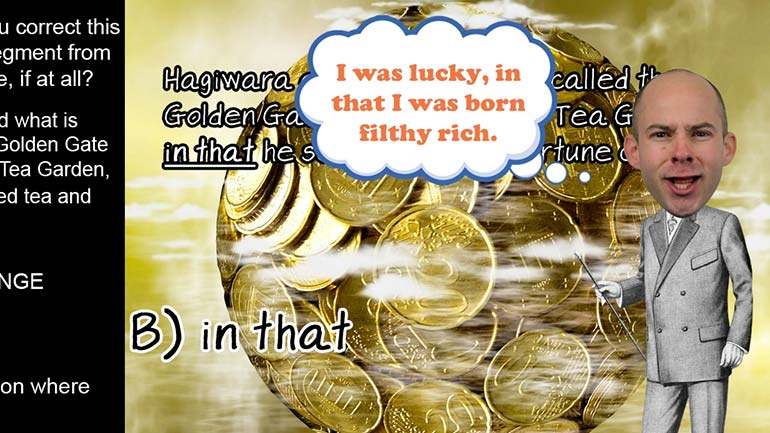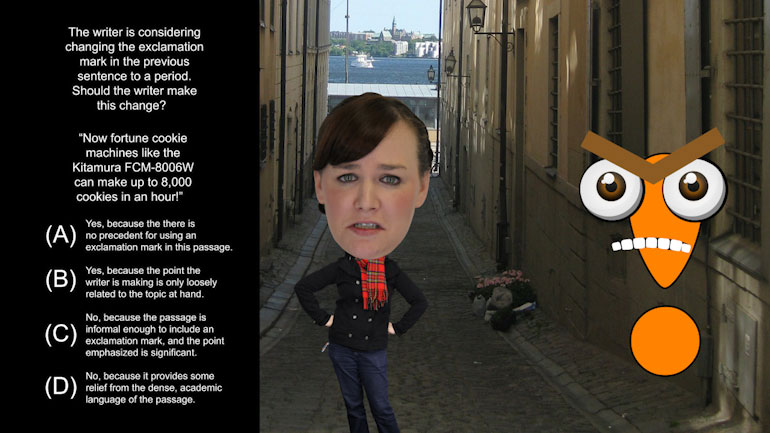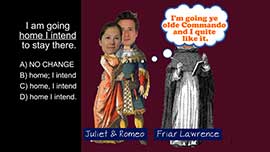ShmoopTube
Where Monty Python meets your 10th grade teacher.
Search Thousands of Shmoop Videos
Diction Videos 15 videos
ACT English: Style Drill 1, Problem 1. Does the underlined portion match the style?
ACT English: Style Drill 1, Problem 2. Which of the choices best matches the tone of the passage?
ACT English: Style Drill 1, Problem 3. Which choice best matches the formality of the sentence?
ACT English 4.5 Passage Drill 175 Views
Share It!
Description:
ACT English: Passage Drill Drill 4, Problem 5. Which choice best connects the two clauses?
Transcript
- 00:03
Here’s your Shmoop du jour, brought to you by Japanese Tea Gardens.
- 00:07
Will they be the next Starbucks? One can dream.
- 00:31
How would you correct this underlined segment from the passage, if at all? where?
- 00:37
And here are the potential answers...
- 00:43
This question asks us to take a look at the conjunction “where” to see if it’s really
Full Transcript
- 00:46
the best thing for this sentence.
- 00:48
Quick review: we know “where” is a conjunction because it’s connecting the clauses...
- 00:53
“Hagiwara owned what is now called the Golden Gate Park Japanese Tea Garden”...
- 00:59
and... “he served tea and fortune cookies.”
- 01:03
Dude, we wish there was a restaurant like that in our neighborhood.
- 01:06
We’ll zero in on choice (B) first.
- 01:09
Yeah, this one is totally a no-go.
- 01:10
The phrase “in that” just isn’t the right thing to connect these two clauses.
- 01:15
Usually, “in that” is used to specify the way in which a statement is true.
- 01:20
Something like, “I was lucky, in that I was born with a silver spoon in my mouth.” Like that would work.
- 01:26
Also, it would be awesome.
- 01:28
This sentence, however, requires a connector that’s about location in some way.
- 01:32
Choice (C) does contain the word “location.”
- 01:35
The problem is that it also contains the word “where,” which is redundant because we
- 01:40
already know the tea garden is a location.
- 01:43
(This is beside the point, but we also think the tea garden is a state of mind.)
- 01:48
Now, on to choice (D), which suggests that we omit the word “where” entirely.
- 01:53
This is incorrect because if we omitted the conjunction, the sentence would be a comma splice.
- 01:58
There has to be a conjunction or a semicolon connecting these clauses;
- 02:01
otherwise, they just can’t stay together.
- 02:05
This brings us back to choice (A).
- 02:07
It turns out that "where" was the word we needed all along. It works perfectly as a
- 02:12
conjunction that indicates the location in which Hagiwara served fortune cookies.
- 02:18
If you want longitude and latitude numbers, you'll need to look those up for yourself.
Related Videos
ACT English: Punctuation Drill 2, Problem 2. Where should the semi-colon be placed?
ACT English: Punctuation Drill 3, Problem 1. How should this sentence be changed so that it is grammatically correct?
ACT English: Punctuation Drill 3, Problem 2. How should we properly hyphenate the words in this sentence?
ACT English: Punctuation Drill 3, Problem 4. Which choice best formats this list of items?
ACT English: Punctuation Drill 2, Problem 1. Which choice of punctuation best completes the sentence?
